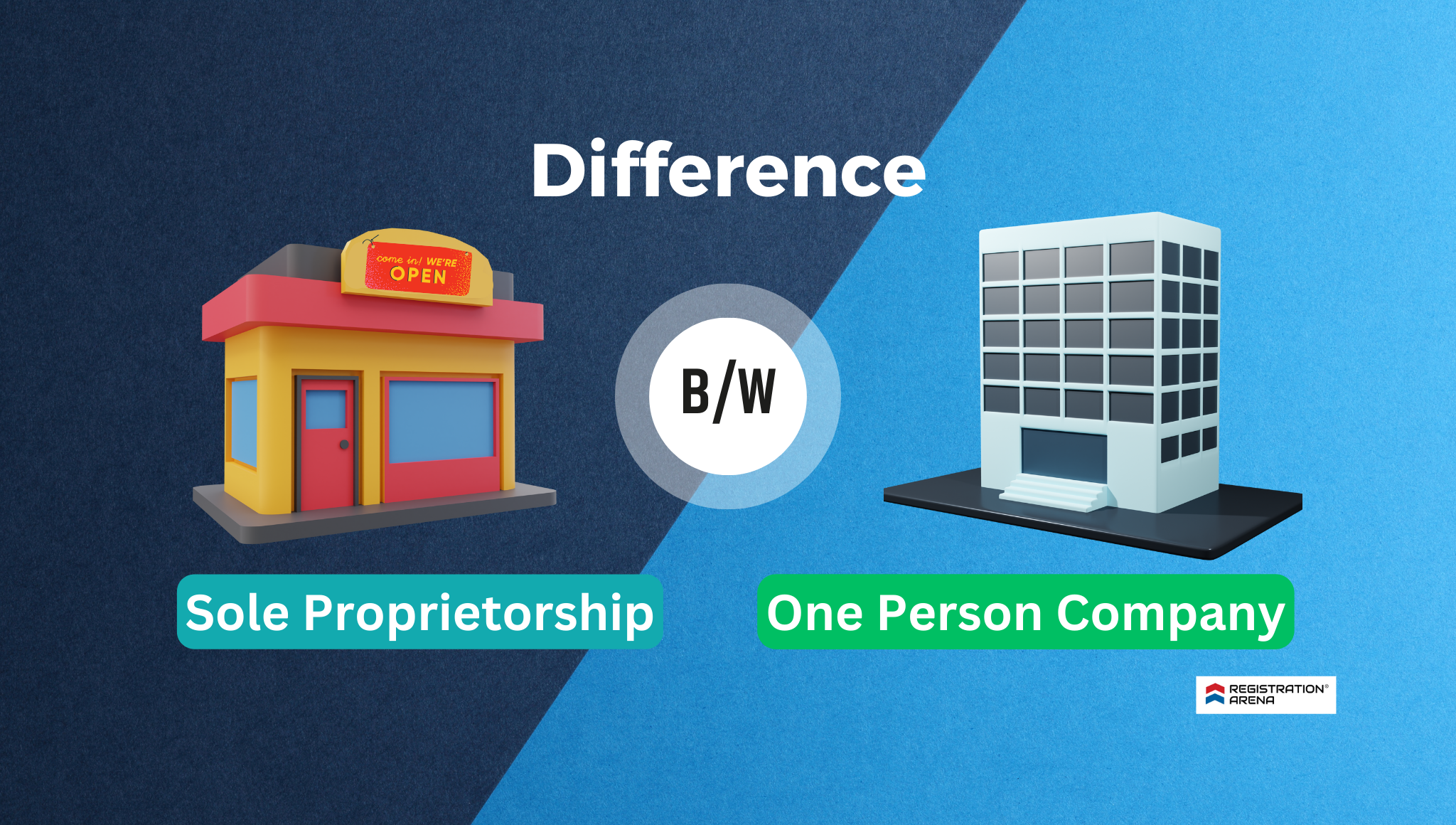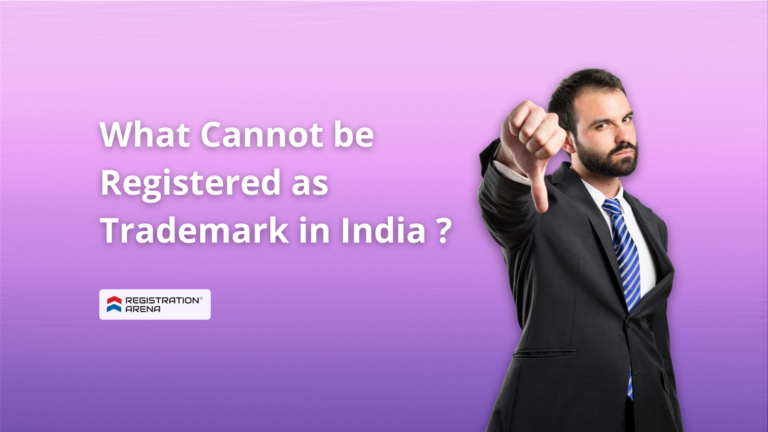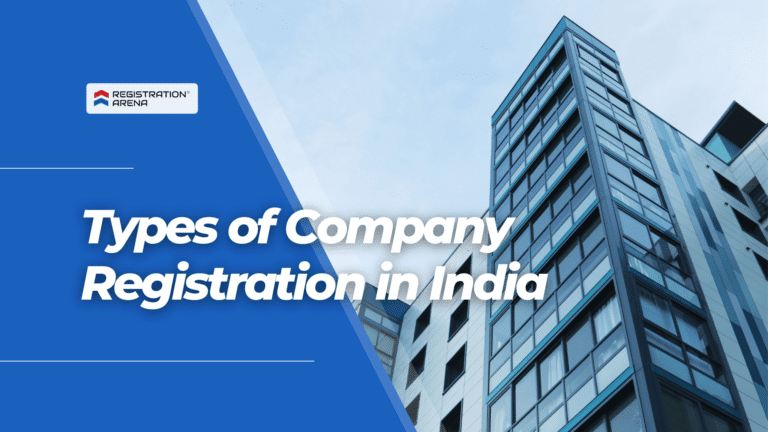Earlier, individuals willing to start their self-owned business had the only option of forming a sole proprietorship firm. But the Companies Act, 2013 introduced the concept of One Person Company, which is like an alternative to sole proprietorship. These two forms of business appear identical but there are considerable differences between them. In this blog, we will look at the major difference between sole proprietorship and One Person Company along with their meaning advantages, disadvantages and suitability.
What is the Meaning of Sole Proprietorship?
Sole Proprietorship, also known as Proprietorship Firm, is one of the simplest forms of business organization. In a sole proprietorship, a single person owns, manages, and controls the business. This individual is known as the ‘sole owner,’ ‘single owner,’ or ‘sole proprietor.’
The sole proprietor takes all the decisions and manages the business on his own. In addition, he keeps the profits of the business and is personally liable for all its debts. In simple words, the owner and the sole proprietorship are considered one and the same.
Some of the examples of sole proprietorship include local grocery shops, salons, chemist shops, etc.
Advantages and Disadvantages of Sole Proprietorship
The following are the advantages of a sole proprietorship business.
- A sole proprietorship is very easy to start and wind up with minimal compliance and paperwork.
- The sole proprietor enjoys all the profits and total control over the business.
- The decision-making process is very fast and flexible because the owner does not need to consult anyone before making decisions.
- Profits of proprietorship businesses are taxed as per income tax slabs applicable to individuals, therefore tax liability is lower as compared to partnerships and companies.
- Proprietorship firms are not required to conduct meetings and file MCA forms and returns, unlike companies. Therefore, there is a lower compliance burden.
The following are the disadvantages of a sole proprietorship business.
- The sole proprietor has unlimited liability which means in case of losses, the creditors can recover their debt by selling the personal assets of the sole proprietor.
- Proprietorship firms generally have lower credibility in the eyes of banks and other financial institutions that limits fundraising and expansion.
- The business comes to an end with the death or incapacity of the owner. Therefore, there is no perpetual succession in a sole proprietorship business.
- The sole proprietor is responsible for managing different aspects of the business like purchase, marketing, financing, etc. Therefore, he becomes overburdened with work.
What is the Meaning of One Person Company?
Companies Act, 2013 introduced the concept of One Person Company (OPC). According to Section 2 (62) of the Act, One Person Company means a company that has only one person as a member. Therefore, an OPC is a company with a single member or shareholder.
Just like sole proprietorship firms, OPC has a single owner, and similar to a company, the liability of the owner is limited. Therefore, a One Person Company is like a combination of sole proprietorship and company. Also, it is considered a separate legal entity distinct from its owner.
Moreover, an OPC is considered a private company and enjoys several compliance-related relaxations under the Companies Act, 2013 and governing rules.
Advantages and Disadvantages of One Person Company
The following are the advantages of One Person Company.
- The liability of the single member is limited to the unpaid amount on his shares. He is not personally liable to creditors of the business.
- The company has a perpetual succession which means its continuance is unaffected by the death or incapacity of the sole member.
- As compared to sole proprietorship, OPC has higher credibility in the eyes of financial institutions as it is set up as a legal entity.
- The sole member can appoint a nominee to take over the affairs of the OPC in case of his death or incapacity.
- The sole member enjoys exclusive control over the business.
The following are the disadvantages of One Person Company.
- There is a limitation on the maximum number of members in an OPC. This limits fundraising and expansion of the company.
- The incorporation cost of an OPC is higher as compared to a sole proprietorship.
- A person can become a member of only 1 OPC at a time.
- The compliance cost is also high as compared to proprietorship firms as OPC shall file MCA forms/ returns, conduct meetings, get its accounts audited, etc.
Difference between Sole Proprietorship and One Person Company
Sole proprietorship and One Person Company apparently seem identical but there are several differences between the two. The following table shows the difference between OPC and sole proprietorship.
| S. No. | Basis | Sole Proprietorship | One Person Company |
| 1 | Legal Status | It is not considered a separate legal entity. | It is considered a separate legal entity distinct from its owner. |
| 2 | Governing Law | Sole proprietorship firms are not governed by any particular law. However, they shall obtain registration under the Shops and Establishment Act, GST, etc. | One Person Companies are governed by the Companies Act, 2013 and rules made thereunder. |
| 3 | Registration | Registration of a sole proprietorship is not compulsory. | It is mandatory to register OPC as per the Companies Act, 2013. |
| 4 | Liability of Member | The sole proprietor has unlimited liability for business debts. | The liability of the sole member is limited to the unpaid amount on his shares. |
| 5 | Director | There is no requirement of a director in a sole proprietorship. | An OPC shall have minimum one director and maximum there can be 15 directors. |
| 6 | Nominee | A sole proprietor cannot appoint a nominee. | The sole member shall appoint his nominee. |
| 7 | Business Continuity | Sole proprietorship comes to an end with the death of incapacity of the owner. | There is perpetual succession in OPC. It continues irrespective of the death or incapacity of the member. |
| 8 | Transferability of Ownership | The sole proprietor cannot transfer his ownership. | The sole member of the OPC can transfer his ownership. |
| 9 | Taxation | The profits of a sole proprietorship business are taxed as the income of the sole proprietor as per applicable tax slabs. | Income of OPC is taxed as per income tax rates applicable to companies. |
| 10 | Annual Filings | The sole proprietor shall file an income tax return every year disclosing the income from the proprietorship business. | OPC shall file its audited financial statements in Form AOC 4 and an annual return in Form MGT 7A apart from filing an income return every year. |
| 11 | Audit Requirements | Accounts of a sole proprietorship business are not mandatorily required to be audited. | It is compulsory for an OPC to get its accounts audited every year. |
| 12 | Maintenance of Records and Registers | It is not compulsory for a proprietorship firm to maintain records and registers. | OPC shall maintain records and registers as specified by the Companies Act, 2013. |
| 13 | Management | It is managed by the sole proprietor himself. However, he may appoint other persons to look after different business activities. | The management is done by the board of directors. |
| 14 | Name | The sole proprietor can either run the business under his own name or under a trade name/ brand name. | An OPC shall get its name approved by the MCA. In addition, it shall have the words ‘One Person Company’ in its name. |
| 15 | Ownership of Property | The sole proprietor owns the property on behalf of the firm. | The company is considered an artificial person and it can own property in its own name. |
Suitability of Sole Proprietorship
A sole proprietorship is suitable as a form of business organization in the following cases –
1) For local businesses such as grocery shops, chemist shops, stationery shops, etc.
2) When the owner wants complete control over the business
3) For rendering personal services such as salons, doctors, architects, etc.
4) For small traders and manufactures
5) Small-sized businesses with a lower profit margin
Suitability of One Person Company
One Person Company is suitable as a form of business organization in the following cases –
1) When the owner wants control over the business but wishes to operate through a corporate structure
2) For small-to-medium sized businesses
3) Where professional management of business is required
4) When the owner wants to safeguard his liability
Conclusion
In conclusion, we can say that there are major difference between a sole proprietorship and an OPC. Both have their own merits and demerits. Therefore, the decision to choose between the two business forms rests on the nature and size of the business operations along with the individual preferences of the owner.
Registration Arena has a team of experts like CA, CS, and Lawyers to help you in the registration of your business and fulfilling its compliance requirements. Call +918600544422 or drop an email at support@registrationarena.com to know more.







